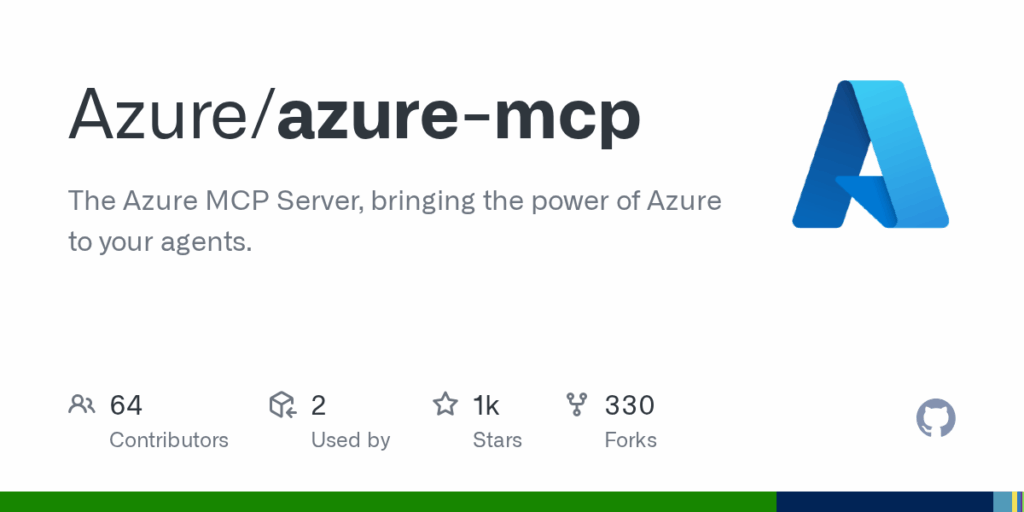azure mcp
Basic Information
The Azure MCP Server implements the Model Context Protocol (MCP) specification to connect AI agents with Azure services. It provides a server and tooling that let agent-enabled clients, such as GitHub Copilot in VS Code, discover and invoke Azure resources and APIs so agents can perform cloud tasks with contextual access. The project is published in Public Preview and can run as a local server, a VS Code extension, a Docker container, or via npx/npm as a custom MCP client. It centralizes access to many Azure products while delegating authentication to the Azure Identity library and documenting telemetry and troubleshooting options. The repository is aimed at developers and integrators who want to enable conversational or programmatic agents to inspect, query, and manage Azure resources without building bespoke connectors.








